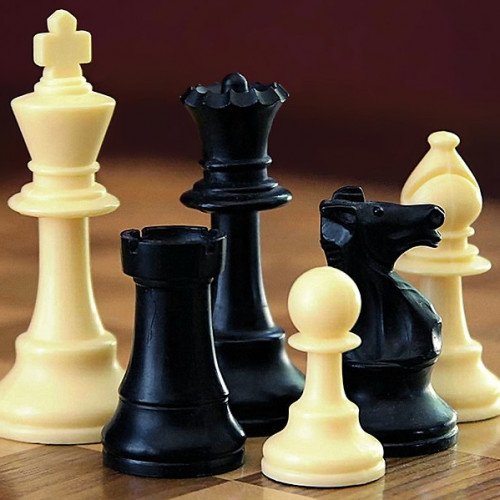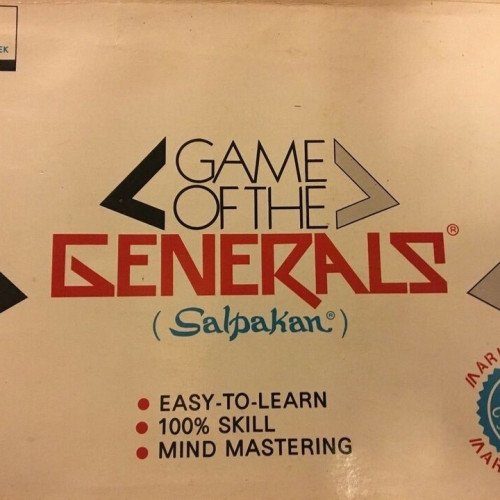CHESS VS GAME OF THE GENERALS

CHESS
Chess is a recreational and competitive board game played between two players. It is sometimes called Western or international chess to distinguish it from related games such as xiangqi. The current form of the game emerged in Southern Europe during the second half of the 15th century after evolving from similar, much older games of Indian and Persian origin. Today, chess is one of the world's most popular games, played by millions of people worldwide at home, in clubs, online, by correspondence, and in tournaments. Chess is an abstract strategy game and involves no hidden information. It is played on a square chessboard with 64 squares arranged in an eight-by-eight grid. At the start, each player (one controlling the white pieces, the other controlling the black pieces) controls sixteen pieces: one king, one queen, two rooks, two knights, two bishops, and eight pawns. The object of the game is to checkmate the opponent's king, whereby the king is under immediate attack (in "check") and there is no way to remove it from attack on the next move. There are also several ways a game can end in a draw. Organized chess arose in the 19th century. Chess competition today is governed internationally by FIDE (International Chess Federation). The first universally recognized World Chess Champion, Wilhelm Steinitz, claimed his title in 1886; Magnus Carlsen is the current World Champion. A huge body of chess theory has developed since the game's inception. Aspects of art are found in chess composition; and chess in its turn influenced Western culture and art and has connections with other fields such as mathematics, computer science, and psychology. One of the goals of early computer scientists was to create a chess-playing machine. In 1997, Deep Blue became the first computer to beat the reigning World Champion in a match when it defeated Garry Kasparov. Today's chess engines are significantly stronger than even the best human players, and have deeply influenced the development of chess theory.
Statistics for this Xoptio

GAME OF THE GENERALS
The Game of the Generals, also called GG or GOG as it is most fondly called, or simply The Generals, is an educational war game invented in the Philippines by Sofronio H. Pasola Jr. in 1970. Its Filipino name is "Salpakan." It can be played within twenty to thirty minutes. It is designed for two players, each controlling an army, and a neutral arbiter (sometimes called a referee or an adjutant) to decide the results of "challenges" between opposing playing pieces, that like playing cards, have their identities hidden from the opponent. The game simulates armies at war trying to overpower, misinform, outflank, outmaneuver, and destroy each other. It optimizes the use of logic, memory, and spatial skills. It simulates the "fog of war" because the identities of the opposing pieces are hidden from each player and can only be guessed at by their location, movements, or from the results of challenges. The game allows only one side's plan to succeed, although a player may change plans during the course of the game. In addition, there are two different ways of winning the game (see below). Certain strategies and tactics, however, allow both sides the chance of securing a better idea of the other's plan as the game progresses. Players can also speak or gesture to their opponents during matches, hoping to create a false impression about the identity of their pieces or their overall strategy. This game was invented by Sofronio H. Pasola, Jr. with the inspiration of his son Ronnie Pasola. The Pasolas first tried the Game of the Generals on a chessboard. Even then, the pieces had no particular arrangement. There were no spies in the experimental game; but after Ronnie Pasola remembered the James Bond movies and Mata Hari, he added the Spies. Making the pieces hidden was the idea of the Pasolas after remembering card games. The Game of the Generals' public introduction was on February 28, 1973. After the game was made, it angered many Filipino chess players thinking that Pasola was trying to denigrate or supplant chess.